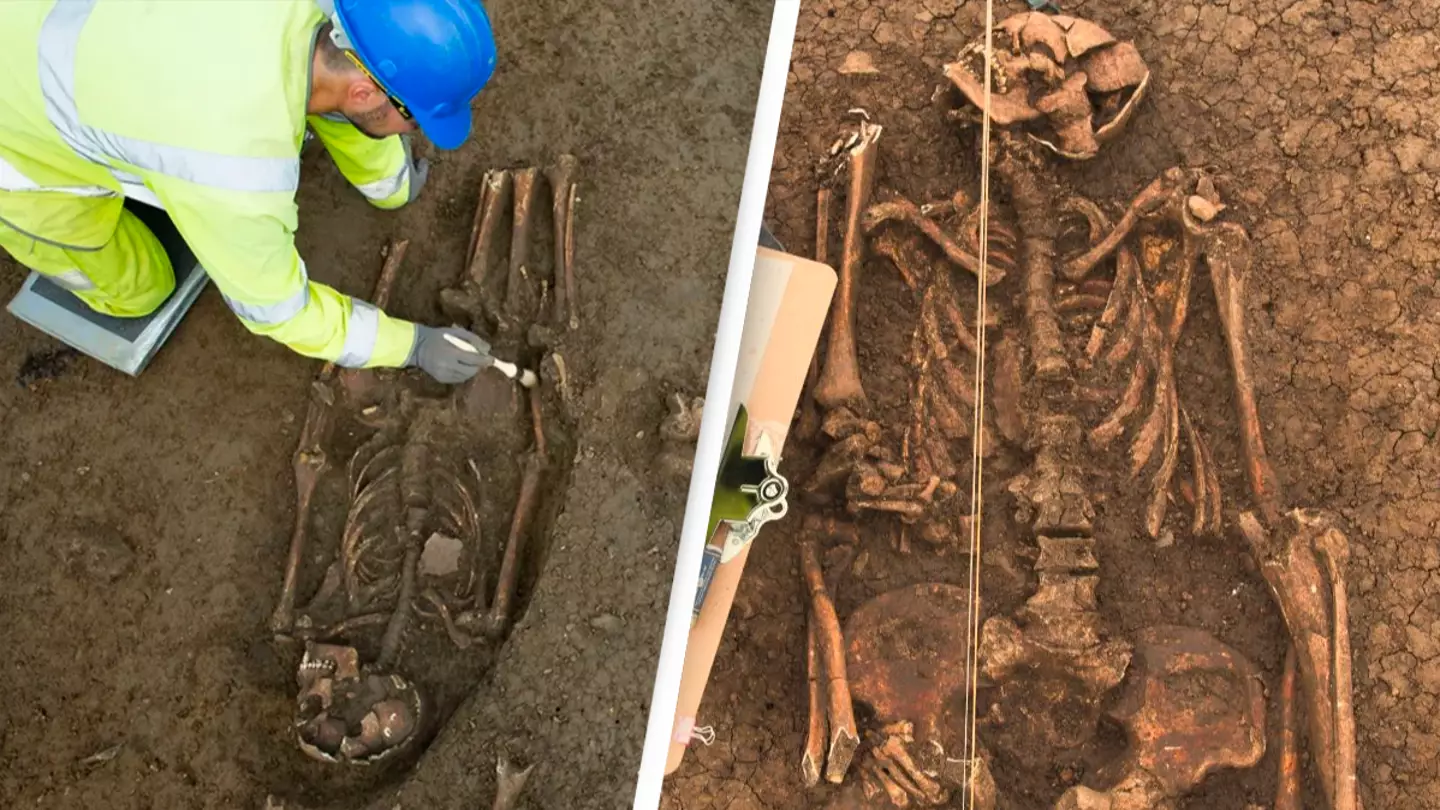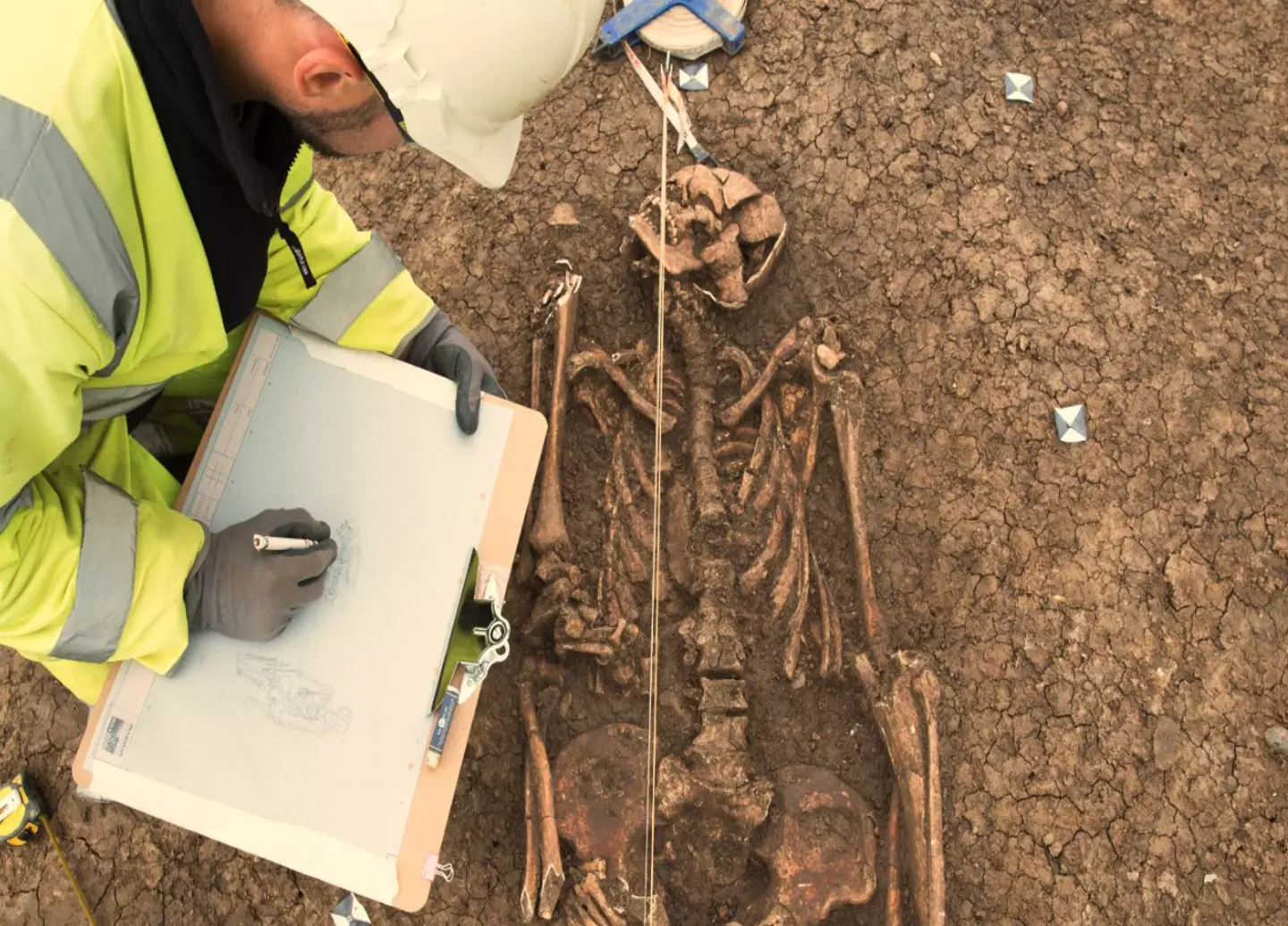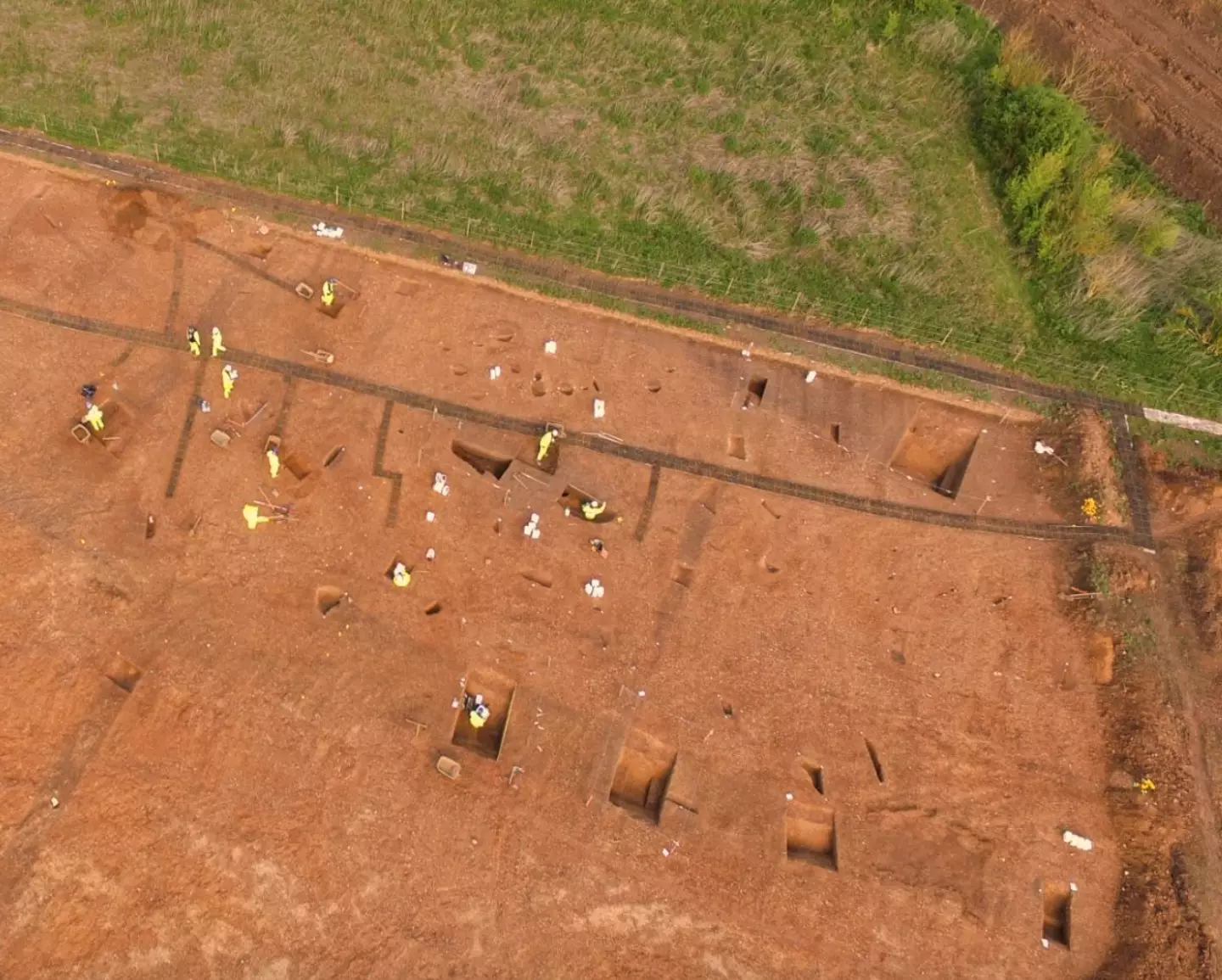
The graves of three men who were subjected to a particularly grizzly death were found buried beneath a Cambridgeshire roadworks site.
Archaeologists uncovered not only the remains of two men whose legs had been chopped off and their skulls smashed in, but another poor fellow whose body had been chopped off at the waist.
The remains are thought to be from the late Roman or early Saxon period and were discovered back in 2018 when the A14 was being widened.

Advert
The legs of the first two bodies had been chopped off at the knees and the corpses were buried in a gravel pit that’s thought to have been used as a rubbish dump.
Although their heads had been smashed in, it’s unclear whether the damage was prior to their death or after.
Archaeologists suspect the men may have had their limbs chopped off as some sort of gruesome punishment.
Kasia Gdaniec, a senior archaeologist with Cambridge county council, told The Guardian at the time: “Was it to keep them in their graves and stop them from running away?
“Or had they tried to run away and was this a punishment – and a warning to everyone else not even to think of it?”
Jonathan House, an archaeologist with the Mola Headland Infrastructure team, added: “Somebody really, really didn’t like these guys.
“We found very few human remains, and then this pair and the poor guy over there.”

The third body was found just 50 metres away in a Roman well. Archaeologists were unable to find any traces of pelvis and leg bones - but did note that the man’s arms and head were still intact - suggesting he’d been chopped in half.
Gdaniec admitted he found the scene quite sinister, telling the paper: “People talk about the archaeology of conquest, but I have never felt it as strongly as here.
“The Romans arrive, the people who were here are completely subjugated, everything changes and is never the same again. We are not seeing trade and peaceful co-existence here, we are seeing enslavement.”
Gdaniec also revealed that Roman-era pottery had been discovered on the site, sharing: “We have some of the pottery they produced.
“It will be interesting to see if we can match it to pottery from other Roman sites. I wouldn’t be surprised if some of the pots from this field ended up on Hadrian’s Wall.”
If you have a story you want to tell, send it to UNILAD via [email protected]
Topics: UK News